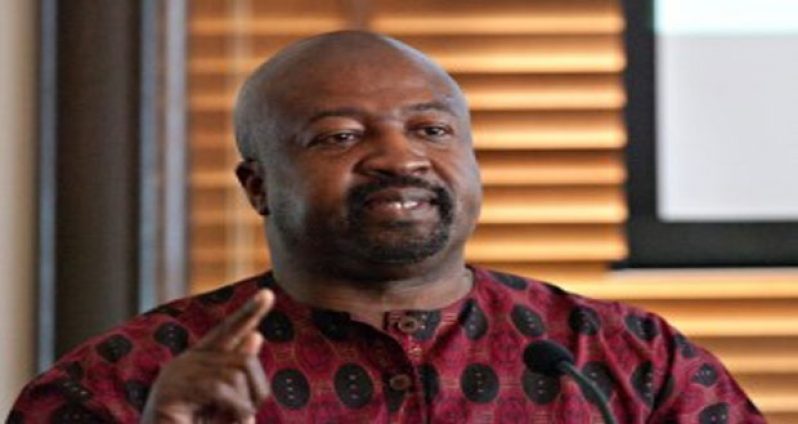IN my remarks at the recent Cuffy250 State of the African-Guyanese Forum, I called on African-Guyanese to make demands of the government for policies that would be directly and indirectly beneficial to that community. Those remarks came after President Granger had challenged African- Guyanese organizations to devise a plan of action consistent with the mandate of the United Nations International Decade of the People of African descent and committed his government to satisfying five of the 10 points laid out by the UN. In effect, the president has joined with the world community in acknowledging the case for reparative policies aimed at correcting the socio-economic and cultural damage done to people of African descent as a result of centuries of enslavement.
As I said in last week’s column, the president must be commended for frontally addressing an issue that has been quite controversial in Guyana. My call for African- Guyanese to pressure the government to institute policies favourable to them does not ignore the gesture by the president. Rather, it is meant to reinforce the president’s challenge.
There are two major considerations that inform my call. First, it is grounded in the age-old truism that governments seldom initiate policy for any group without direct demands from that group, or unless it feels that the absence of such policy will negatively affect its chances of retaining power. We in Guyana have long abandoned the tradition of making demands of government, partly because in our tribal politics those demands have often been ignored or deemed a form of ethnic betrayal. So government policy choices have been driven less by demands from the groups and more by what guarantees the party’s or parties’ survival in power.
The second related consideration that informed my call was the simple fact that the vast majority of African-Guyanese voted for the present government and has a right to expect the government to implement policies favourable to them. It would be stupid for a community to vote for a government and not expect that government to advance policies favourable to it. The problem is that it is difficult for a government of a particular ethnic group to implement policies that directly benefit that group without facing the sometimes fatal charge of racism.
That is the bind the present government finds itself in. It is easier for the government to articulate a policy that favours the survival of the sugar and rice industries or the empowerment of hinterland communities. Note that the massive subsidy for sugar in the form of the bailouts, which benefits the Indian-Guyanese and Amerindian communities, was not a controversial issue. But as soon as the President hinted that the government would look into issues that affect African-Guyanese, charges of ethnic favouritism begin to surface.
Let’s be frank– In an ethnically divided political economy such as ours, no government policy is ethnically neutral. Given the ethnic architecture of our political economy, public policies logically have ethnic impact. Ravi Dev has long called for Ethnic Impact Statements to accompany public policy. The APNU+AFC included it in their election manifesto. If such statements are issued, the country would be publicly notified about the impact of the policy, which then forces the government to ensure that all ethnic groups benefit from its menu of policies.
I have come to the conclusion that we have to move past that section of the society which refuses to accommodate the fact that our electorate and economy are divided and as such, government policy has to respond to that reality. Ethnic Unity and Social Cohesion are ideals and goals that we must always strive for; we cannot escape that imperative. But while we move in that direction, initiatives to that effect cannot and should not become substitutes for the socio-economic security of the individual groups.
Our society is stalled partly because we have refused at the level of policy to openly address the particular needs of our ethnic groups. The idea of “one tide lifts all” has been a colossal failure—time to move away from it. The experience of enslavement has left in its wake particular socio-economic challenges for African-Guyanese. Indentureship has left its particular scars on the Indian-Guyanese community. Marginalization to the physical and socio-political edge of the society has affected Amerindians in particular ways. The correction of these maladies will take particular policies. We have to come to grips with these realities and move on.
This does not mean that government must initiate ethnic policies outside of a national framework; to the contrary, those policies must fit into a larger national developmental framework. So when the government fixes sugar, it benefits the mainly Indian-Guyanese sugar workers and the larger Guyanese economy. When the Village Economy is restored through policy and African-Guyanese and Amerindian Entrepreneurship is encouraged, all of Guyana benefits.
So I reiterate my call to African-Guyanese to demand favourable policies from government. The answer to government sloth in this regard is not to say you wouldn’t vote in 2020, but to demand value for your 2015 vote. And note, the demand must not be for handouts, it must be for policies from which the entire community would benefit. To the leaderships of the other ethnic communities, rather than charge the African-Guyanese with wanting favoured status, you should make your own demands on government.
Dr. David Hinds, a political activist and commentator, is an Associate Professor of Political Science and Caribbean and African Diaspora Studies at Arizona State University. More of his writings and commentaries can be found on his YouTube Channel Hinds’ Sight: Dr. David Hinds’ Guyana-Caribbean Politics and on his website www.guyanacaribbeanpolitics.com. Send comments to dhinds6106@aol.com




.png)









